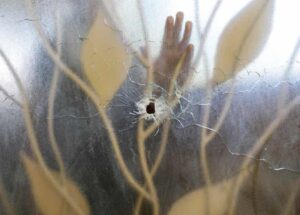
The worst fears of midwives at Heartline Haiti were realised last week. As they prepared the maternity clinic for patients that evening, armed men laid siege to their neighbourhood in eastern Port-au-Prince, spraying bullets at police and rival gangs, setting cars on fire and ransacking houses.
“All of our staff were huddled in an interior hallway hearing the noises outside the gates and walls, afraid they may be next,” says Tara Livesay, the NGO’s executive director. “A gang member was shot dead outside, just two doors over.”
After a terrifying night, staff managed to make it out safely the next morning when the street battles subsided. The organisation has had no option but to close the clinic, leaving the 75 pregnant women it had been supporting with nowhere to go for medical care or to have their babies delivered.
“We’ve tried so hard to keep the clinic open but there is not much else we can do now. I can’t ask people to go to work if they might get hit by a bullet,” says Livesay.
Armed gangs have terrorised the Caribbean country since its president, Jovenel Moïse, was assassinated in July 2021, but in the past month there have been unprecedented levels of violence. The UN’s human rights expert on Haiti, William O’Neill, has called the situation “apocalyptic”.
More than 53,000 people have been forced from their homes in the past three weeks and more than 1.64 million people across Haiti are on the verge of famine.
“Life is already hard in Haiti. It’s impossible to shop or do the most basic of tasks. Then imagine having to deliver and care for a baby on top of that,” says Philippe Serge Degernier, Haiti representative for the United Nations Population Fund (UNFPA), which provides sexual and reproductive health services. “It’s a nightmare.”
